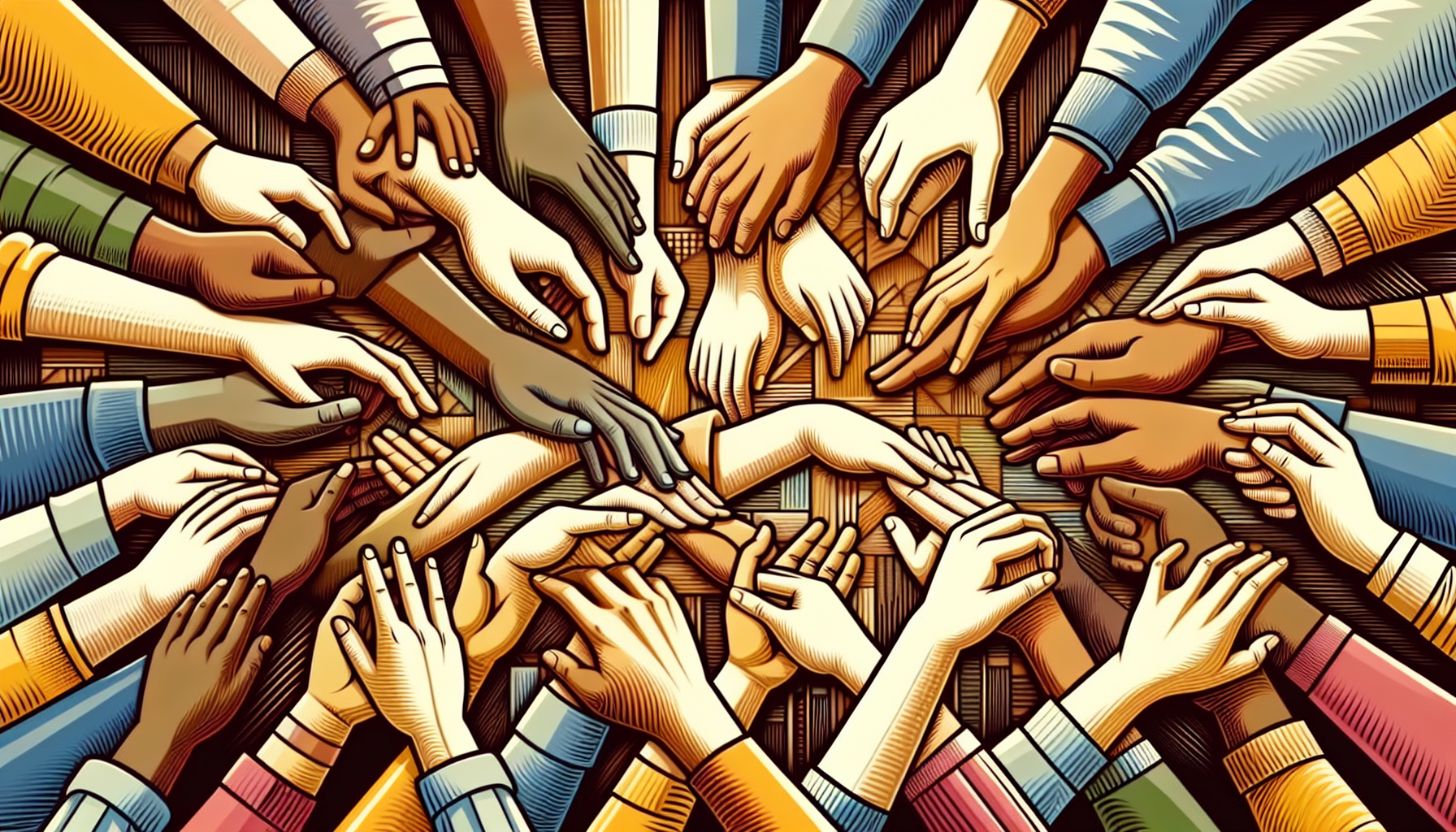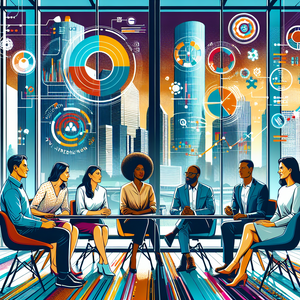The Art of Listening: DEI Managers as Communication Champions

Active listening is more than just hearing the spoken words; it involves engaging fully with the speaker, grasping their message, and responding thoughtfully. Within the context of DEI initiatives, active listening serves several vital purposes: 1. Foundation for Open Communication: Employees from diverse backgrounds possess unique perspectives shaped by their experiences. When DEI Program Managers actively listen, it creates an inclusive atmosphere where employees feel comfortable expressing their thoughts and emotions. 2. Identification of Gaps: Active listening enables DEI Managers to uncover underlying issues that may not be immediately apparent. For instance, engaging employees in focus groups or one-on-one conversations can reveal challenges within the organization’s DEI efforts, allowing for more tailored solutions. 3. Fostering Belonging and Trust: When employees feel genuinely heard, it cultivates a sense of belonging and trust, essential for collaboration and innovation. Organizations that prioritize listening tend to have higher employee satisfaction and retention rates.
Techniques for Effective Active Listening
To harness the power of active listening, DEI Program Managers can employ several techniques: 1. Create Safe Spaces: Establish environments where employees feel comfortable sharing their thoughts and experiences without fear of judgment. This could include hosting regular listening sessions or informal gatherings where employees can voice their opinions freely. 2. Practice Reflective Listening: DEI Managers should summarize what employees share to confirm understanding and demonstrate that their input matters. Using phrases like "What I hear you saying is..." reinforces this practice and builds rapport. 3. Ask Open-Ended Questions: Encourage deeper conversations by posing questions that require more than a simple yes or no answer. For example, "Can you share a time when you felt excluded at work?" This approach invites employees to share their experiences in detail. 4. Be Mindful of Non-Verbal Cues: Active listening extends beyond verbal communication. DEI Program Managers should pay attention to body language, facial expressions, and tone to gauge emotional responses, ensuring that the conversation remains empathetic. 5. Follow Up: After listening sessions, DEI Managers should follow up with employees to share how their feedback has influenced decisions or changes within the organization. This reinforces the value of their input and encourages future participation.
Supporting Examples and Evidence
Research supports the assertion that organizations emphasizing active listening and open communication experience heightened levels of employee engagement and performance. A study by the Harvard Business Review found that companies with inclusive cultures saw a 40% increase in employee engagement and a 29% increase in productivity compared to those with less inclusive practices. Moreover, organizations like Google have implemented active listening initiatives as part of their DEI strategies, resulting in improved employee morale and retention rates. By demonstrating a commitment to listening, these companies have cultivated cultures where all employees feel valued, leading to increased innovation and collaboration.
In the realm of DEI, active listening is not merely a skill but a fundamental component of creating an inclusive workplace culture. By embracing this practice, DEI Program Managers possess the ability to transform organizational dynamics, ensuring that every employee's voice is acknowledged and appreciated. As businesses continue to navigate the complexities of diversity and inclusion, prioritizing active listening will be instrumental in fostering a culture of respect, understanding, and collaboration. Ultimately, organizations that master the art of listening will not only enhance their DEI efforts but also pave the way for a more innovative and successful future.
Diversity, Equity, and Inclusion (DEI) Consultant
Consulting firms, corporate HR departments, non-profits focused on social justice
Core Responsibilities
Assess organizational culture and practices to identify areas for improvement concerning diversity and inclusion.
Design and facilitate training programs aimed at enhancing employee awareness and understanding of DEI issues.
Collaborate with leadership to develop and implement DEI strategies that align with organizational goals.
Required Skills
Strong analytical skills to evaluate data and metrics related to diversity initiatives.
Excellent communication and interpersonal skills for facilitating discussions and training sessions.
Experience with change management practices and cultural competency training.
Employee Engagement Specialist
Large corporations, tech companies, non-profit organizations
Core Responsibilities
Develop and execute engagement strategies that enhance employee satisfaction and retention.
Create and implement surveys and feedback mechanisms to gather employee input on workplace culture.
Analyze survey data and employee feedback to inform actionable improvement plans.
Required Skills
Proficiency in data analysis and interpretation, particularly with employee engagement metrics.
Strong listening and communication skills to effectively gather and address employee concerns.
Familiarity with human resources practices and employee relations.
Organizational Development Manager
Fortune 500 companies, educational institutions, healthcare organizations
Core Responsibilities
Lead initiatives to improve organizational effectiveness through training and development programs.
Facilitate workshops that promote team collaboration and conflict resolution.
Partner with various departments to align development programs with business objectives.
Required Skills
Strong project management skills to oversee multiple initiatives simultaneously.
Expertise in adult learning theories and instructional design.
Ability to cultivate relationships across all levels of the organization, fostering a culture of trust and respect.
Talent Acquisition Specialist (Diversity Recruitment)
Recruitment agencies, corporate HR departments, government agencies
Core Responsibilities
Develop and implement targeted recruitment strategies to attract diverse candidates.
Partner with community organizations and educational institutions to enhance outreach efforts.
Monitor and report on diversity hiring metrics to ensure alignment with organizational DEI goals.
Required Skills
Knowledge of diversity recruitment best practices and legal compliance in hiring.
Strong networking skills to build relationships with diverse talent pipelines.
Excellent communication skills to effectively engage with candidates and stakeholders.
Cultural Competency Trainer
Educational institutions, corporate training firms, NGOs focused on cultural awareness
Core Responsibilities
Design and deliver training sessions focused on enhancing employees' understanding of cultural differences and inclusion.
Assess training effectiveness and make modifications based on participant feedback.
Collaborate with DEI leaders to integrate cultural competency into the organization's mission and values.
Required Skills
Expertise in cultural awareness and sensitivity training methodologies.
Strong presentation skills and the ability to engage diverse audiences.
Experience in curriculum development related to DEI topics.


